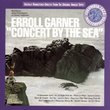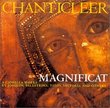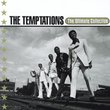| All Artists: Ludwig van Beethoven, Rudolf Serkin Title: Beethoven: Piano Sonatas "Pathétique" and "Hammerklavier" Members Wishing: 0 Total Copies: 0 Label: Sony Original Release Date: 1/1/1992 Re-Release Date: 6/2/1992 Genre: Classical Styles: Forms & Genres, Fantasies, Sonatas, Historical Periods, Classical (c.1770-1830), Romantic (c.1820-1910) Number of Discs: 1 SwapaCD Credits: 1 UPC: 074644766622 |
Search - Ludwig van Beethoven, Rudolf Serkin :: Beethoven: Piano Sonatas "Pathétique" and "Hammerklavier"
 | Ludwig van Beethoven, Rudolf Serkin Beethoven: Piano Sonatas "Pathétique" and "Hammerklavier" Genre: Classical
This extraordinary disc couples two of Beethoven's greatest sonatas in performances that are second to none. Rudolf Serkin's Beethoven credentials were legendary, offering an ideal combination of musical integrity and inte... more » |
Larger Image |
CD DetailsSynopsis
Amazon.com This extraordinary disc couples two of Beethoven's greatest sonatas in performances that are second to none. Rudolf Serkin's Beethoven credentials were legendary, offering an ideal combination of musical integrity and intellectual strength. His approach pays particular dividends in the Hammerklavier Sonata, where his liveliness and lack of pretension makes the work far less forbidding than it can sound in other hands. Both the Pathétique and Hammerklavier Sonatas are essential listening for anyone interested in Beethoven's piano music; and at budget price, with the rarely heard Fantasia, Op. 77, tossed in for good measure, it doesn't get better than this. --David Hurwitz Similarly Requested CDs
|
CD ReviewsA GIANT DAVID BRYSON | Glossop Derbyshire England | 07/12/2003 (5 out of 5 stars) "Is Serkin to your taste? Aficionados of pianos without hammers will not find much of what they are looking for here!. However if your impression of him is mainly raw power and tension, I believe you stand to discover one of the deepest and most complex and thoughtful interpretative worlds in the entire 20th century. The Pathetique gets an athletic reading in the outer movements, slightly solemn in the slow movement. One unusual feature is that the Grave introduction is included in the repeat - Beethoven does not actually say where to start the repeat. The rarely heard G minor fantasia is my idea of Beethoven playing at its greatest. The piece is top-rate Beethoven with abrupt changes of mood that Serkin can articulate like nobody else. And for outstanding beauty and delicacy try the variation-theme and the first variation. In op 106 Serkin does not rush the outer movements. The familiar strength of line is there of course, but there is infinite attention to detail. In the scherzo he does not attempt the 'snap' that some younger players put into the rhythmic figure, and I found myself wondering how Serkin himself played it when younger. But it may have nothing to do with age. He does not always do what you expect, to say the least, and Richter for one, in his very attractive live performance from Blythburgh church, is even less inclined to go with the young lions here. The slow movement is famously Beethoven at his deepest, and to say this is not your average interpretation would be an understatement. The opening is not pianissimo, and I was surprised to find that there is no dynamic marking at all, which in Beethoven usually means something like mezzopiano. The speed seems faster then usual, but I timed Serkin at 16 minutes to Richter's 17, so overall there is little difference. The left-hand chords in the transition-theme are unpedalled for once -- why on earth did Beethoven labour with his quill pen to write chords short and followed by rests if, like everyone else I can recall, the player undoes the effect with pedal? The reprise of the main theme is, for me, the greatest sequence in all Beethoven, and here you get the full sense of Serkin's flowing tempo -- the phrasing, the continuity, the rhythmic subtlety are sublime. In the course of this stupendous passage Beethoven writes 'molto espressivo' -- what was the rest of it, for heavens sake? What more can the interpreter do? Just listen to that mighty left hand shouldering its way (to mix my anatomical metaphors) through the flickering figuration in the right and you will find out. The last movement is utterly uncompromising, (and I should think so too), culminating in some really prodigious fortissimo trills. It's an experience not to be missed. Be prepared for the start -- I know from hearing him play the piece live just what a gigantic sound Serkin produced in those opening chords. By comparison Richter hardly seems to be trying. What makes them extraordinary is the wonderful rich tone, quite unlike the familiar Serkin crash on fortissimo chords (you can hear that in the finale). It obviously gave the recording engineers a problem, because in the following phrase the piano momentarily seems a bit distant. I may mention here that although Serkin's pedalling is rather audible, we are mercifully spared his vocalising. I could go on for long enough pulling out plums, but I will settle for just two more details. The lovely running duet between the hands in the first movement is as from nobody else. Serkin simply follows Tovey's instruction 'left hand leads'. At the reprise of the main theme in the same movement Serkin is too loyal to Beethoven to play the sublime but unauthentic reading of A sharp in the lead-in bar, which Pollini, Richter and Solomon among others play. Can there possibly be such a thing as Beethoven Improved? Well, the exception proves the rule. Even that high priest of Beethoven Professor Tovey sighs for A sharp not A natural here, but has to admit that it's not what B wrote. However if the whole idea seems blasphemy to anyone, rest assured that you will not get Serkin altering Beethoven, even for the better." WHAT IF YOU COULD SEE BEETHOVEN'S SOUL..WOULD YOU DARE LOOK? demien | U.S.A. | 09/08/2001 (5 out of 5 stars) "RUDOLF SERKIN WAS A MASTER PIANIST WHO SPECIALIZED IN THE GERMAN ROMANTICS SUCH AS BEETHOVEN AND BRAHMS. SERKIN WAS A COMBINATION OF THE HEART AND THE INTELLECT AND WHEN BOTH OF THOSE INGREDIENTS CLICKED AS THEY DO HERE... YOU HAD A UNBEATABLE COMBINATION. SERKIN'S HAMMERKLAVIER IS A MARVEL OF STRENGTH,CONCENTRATION,AND SPIRITUALITY. ATTENTION AND CLARITY OF DETAIL COMBINED WITH PRECISION AND INSPIRATION MAKE FOR THE MOST COMPELLING RESULTS IN WHAT IS CONSIDERED BY MANY TO BE THE GREATEST PIECE OF CLASSICAL KEYBOARD MUSIC. SERKIN TAKES A MORE EXPANSIVE VIEW OF THE FIRST MOVEMENT (CLOCKING IN ABOUT 12 MINUTES)YET THE POWER AND MAJESTY ARE NOT LOST AS HE STRIKES EVERY NOTE WITH CONVICTION AND A MIGHTY AUTHORITY. THE SCHERZO IS PLAYFULL AND PRANCES WITH DELIGHT AS IT SHOULD MEANWHILE THE IMMORTAL ADAGIO IS TAKEN AT A FASTER TEMPO(ABOUT 16 MINUTES)WHICH DOES NOT AFFECT THE IMPACT DUE TO SERKIN'S ROCK SOLID CONCENTRATION AND MASTERFUL WAY OF PACING AND PHRASING. SERKIN TAKES THE ADAGIO AND DIGS DEEP INTO THE CORE OF ITS SOUL AS HE KEENLY UNVEILS THE EMPTINESS AND SORROW THAT LIE WITHIN EVERY NOTE. THE FINAL MOVEMENT IS TECHNICALLY IMMACULATE AS SERKIN HANDLES THE COMPLEX MELODIC STRUCTURE AND RHYTHMIC COMPLEXITY MEANWHILE RETAINING THE GHOULISH DANCING MOMENTUM THAT THIS MOVEMENT ENTAILS. MARVELOUS! O.F." The greatest Pathetique; A topflight Hammerklavier. And the John Parker Marmaro | Spring Hill, Florida | 10/21/2006 (5 out of 5 stars) "This disc is a MUST-HAVE. Even if you already have other recordings of the Pathetique and Hammerklavier. Why? the most obvious reason is the inclusion of Serkin's splendid performance of the almost impossible to find Fantasy in G Minor, Op.77 -- in fact, I don't think I have ever heard tell of another available recording. (Though Sony/Columbia have issued this recording with other couplings, such as the Diabelli Variations.) So how lucky we are that the one we DO have is by Rudolf Serkin, unquestionably one of the great pianists of the 20th Century.
A few words about op. 77 are in order here. The piece itself is fascinating, because it gives us, as it were, a glimpse of Beethoven's improvisatory technique-- it is (and the sketchbooks seem to support the notion) a case where the master appears to have pretty much merely written down an improvisation. And it is beautiful as well. It is also very interesting as per form. It begins with two somewhat dissonant downward glissandi, followed by an almost verbatim statement of the beautiful E minor piano theme from the slow movement of the G Major Piano Concerto (here given in G Minor). After repeating these transposed lower, there follows a series of very free variations on this theme. It is whittled down to its harmonic skeleton and then this is refashioned finally into a new (but clearly derived) theme in the major. At this point the downward glissandi recur, as if to point up or articulate this moment. The new, no-longer-melancholy transformation theme is now examined in a further series of variations -- and still the harmonic structure of the original sad G-Minor theme is audible throughout. After a penultimate triumphant variation, there is finally a quieter dissolution one, and then a coda-- at the end of which the original glissandi, no longer dissonant, round off the piece. A delightful piece, showing a genius at play! Serkin's Hammerklavier is among the very best available. And if I myself would still award the laurel for BEST to another performance (Charles Rosen's flawless rendition, available on Sony/Columbia in a 2-disc set of the late Beethoven sonatas), Serkin's is almost as good: and if Rosen's particularly shines in the first and second movements, Serkin's playing in the third and fourth, especially, is utterly felicitous and humane. Certainly the peer of Brendel's famous version. And the Pathetique! This is, in my considered opinion, the VERY BEST version of this magnificent early masterwork on record. And I have heard very many other recordings, as well as numerous live performances. None have equalled, and few have approached, Serkin's magisterial performance. Especially of the first movement: exquistively gauged in every respect. His tempi are authentically very fast, yet he makes it sound effortless: never has the allegro been more thrilling in its athleticism, and his bringing out of the themes, yet never at the sacrifice of the whirling accompaniments, is -- perfect. So many performers play this movement with a heavy hand and a great deal of (albeit subtle) rubato. The very lightness of Serkin's touch adds to the almost physical thrill of the movement, which can fairly send chills up one's spine. Hearing his version, one can almost see why some demagogues of the time thought the music subversive! (Mozart, though, I think, would have been delighted.) Serkin's rendering of the famous, luscious slow movement, and the agitated final rondo, are also magnificent. In short, this disc is a MUST HAVE-- especially at its remarkably low price! Not only for the inclusion of the rare Fantasy in G, but also, for what is emphatically the benchmark version of the Pathetique, and one of the 3 or 4 best versions of the Hammerklavier. Don't hesitate! Snap it up before it goes out of print! Let us hope Sony will also release the Serkin performances of the wonderful Sonata no. 11 in B-Flat, Op. 22, and the op. 78 Sonata, which at one time were coupled with the Fantasy on vinyl." |

 Track Listings (8) - Disc #1
Track Listings (8) - Disc #1








